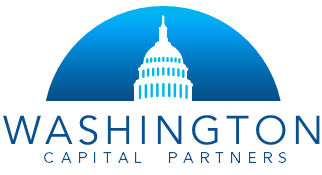For an investor, getting a real estate license has a lot of pros, but the cons come in the form of the time, including the money, time and effort spent to receive it. This post walks you through both sides of the equation and provides you with situations so you can finally decide if you should go for it or hire an agent you can trust.
Is a Real Estate License Worth it For Investors?
Let’s start with the downsides of getting your license. You’ll spend hours going to classes or completing online courses and there will be more time spent studying for the licensing examination, followed by meeting with brokers to choose where to hang your license. In addition to the time it takes to learn the required curriculum and secure your license, there are several monetary costs as well.
The costs of a real estate license* include:
- Training, book fees, and/or tuition before licensing exam: $300-$800
- Application Fee: $100-$250
- Licensing Examination Fee: $35-$100
- License Fee: $200-$500
- Criminal background check and fingerprinting: $20-$40
- Broker fees, generally a percentage split of your commission plus a monthly desk fee: varies
- E&O Insurance annual premium, if not covered by the brokerage: $650-$700
- MLS listing annual subscription: $200
Some of these costs may be covered by the broker of your office, but its typical for realtors to incur the cost of many of the items listed above. If money isn’t a concern, but time is, then it probably doesn’t pay to get licensed. You can hire an agent that you trust and get to enjoy the life you’ve worked hard to build. Then again, sometimes the market slows and rehabbing, renovating and flipping properties slows. This is when even an experienced investor can find some time in having a real estate license.
The Benefits of Having a Real Estate License as an Investor
If you’re just starting out as an investor and want to focus all of your capital on acquiring and rehabbing properties, then the extra work of becoming licensed may make sense so you can save money on commissions as well as cut your own deals. You can also take on client work while building your portfolio and reputation.
The time and money you spend getting licensed could pay off quickly because of the pre-licensing education process, which in most states includes courses that will bolster your knowledge of market analysis, pulling comps, and structuring contracts. These are all useful skills for any investor to have and will benefit your house flipping business, so you may end up getting paid back in commissions and a bolstered knowledge of the industry.
By receiving your license and gaining to the MLS database and you’ll be able to find properties in the neighborhoods you’re most interested in as soon as they hit the market. Many MLS databases have built-in features and tools that can help you identify and track neighborhoods that you are most interested in by variables such as tax assessed value, school districts, and proximity to amenities. The MLS also works as your ticket to higher quality comps by giving you access to tax records and other files that give you real, recorded data instead of educated assumptions like “Zestimates” from zillow.com.
One final benefit for investors who get a real estate license is the knowledge gained and ability to more easily broker complex deals, pull in other partners to purchase properties, and work on projects which are difficult, if not impossible to do on your own. Factors like available funds, removing or evicting occupants/squatters, identifying and removing title liens, or just the overall scope of work for a project may require additional partners with access to different resources. Part of the real estate pre-licensing education includes structuring contracts, a skill that can be incredibly useful when dealing with partners and crafting complex property transactions with multiple equity holders.
As a bonus, when you’re working under a broker, you can help others buy and sell their properties too. This can be done as a favor for someone or used to barter a deal if the other party needs an agent. You waive your fee and you bring a buyer, they send you a few leads which only they know about in their market. This alone is worth the cost and time for getting licensed.
Time Saving Benefits for Having a Real Estate License
Getting your license not only reduces your costs, but it also makes finding deals more efficient, which means you can flip more properties per year.
- With MLS access, there’s no waiting for details about a property, you can look them up yourself.
- If you’re buying the property and selling, you don’t have to wait for non-responsive agents to do their part.
- You can list your property right when it’s ready to sell, not when an agent or admin to find time for it.
- As a lead from a buyer comes in, it goes directly to you versus a potentially busy agent.
- You can make decisions on the spot, versus risking a disagreement with your hired agent on pricing strategy or accepting an offer.
A real estate license is a good investment for investors who flip several properties a year and could use the commissions from those transactions to fund future deals. But if time is something you cannot sacrifice in the short run, or you want to focus on growing your business and sourcing new properties, and partnering with an experience, investor-freindly agent.
*Please note: these costs can and do change, these are at the time of research.

